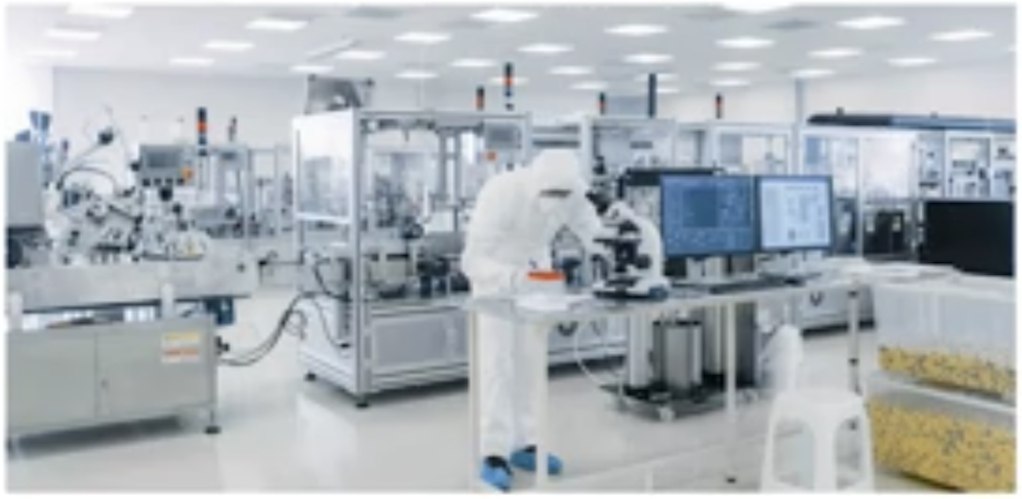Healthcare stocks: stay local or go global?
Listed healthcare companies, including those in medical technology, biotechnology and pharmaceuticals are among some of the most defensive assets, so are particularly favoured by investors in times of market volatility. We’ve certainly seen this during the COVID crisis, with valuations for the largest Australian-based companies in the sector bid up since the pandemic hit local shores in mid-February.
Companies from the sector – both Australian and global names – were among the stocks pitched by some of Australia’s most successful fund managers at this year’s SOHN Hearts & Minds conference last week. The virtual conference was held on Thursday 13 November, ahead of the physical conference in Hobart on 19 November.
Paradice Investment Management portfolio manager David Moberley and Catherine Wood from the Nikko AM ARK Global Disruptive Innovation Fund were among the local fundies who pitched this year. Time will tell whether Wood's 2020 pick – as revealed below alongside three others – lives up to the outperformance of her nominated stock last year, Elon Musk's Tesla, which rose more than five-fold in the ensuing 12 months.
Blood plasma, vaccines spell success
Shares in biomedical company CSL Limited (ASX: CSL) – the largest company in its sector and one of the biggest on the ASX overall – are up around 12% since February, trading at $308 at midday on Thursday 19 November. But Paradice Investment Management portfolio manager David Moberley still sees value in the company, which remains down some 8% from its annual high point of $340 struck in February.
“It has strong cashflow and a rock-solid balance sheet, and despite being one of the best performers in the market for more than a decade, the stock has underperformed since March,” he said.

Short-term, he notes the market is concerned about the company’s ability to get sufficient resources to fulfil customer needs, “and I think this has created an excellent opportunity in the stock.”
CSL’s influenza division is spearheaded by Seqirus, which was acquired five years ago for $275 million and is now valued at around $300 million. The company holds 30% market share in this segment, which has benefited from increased consumer awareness of the important of vaccines as a result of the COVID pandemic.
“I think there is potential for a longer-term upward shift in vaccination demand, which CSL would clearly benefit from,” said Moberley.
The company’s other key revenue generator is CSL Behring, which is a biopharmaceutical business that manufacturers blood plasma-derived products. Moberley is particularly impressed with the scale of its investment in research and development – around 10 to 12% of revenue.
“CSL is spending money trying to beat itself at its own game, and that’s what gives me the confidence that the existing earnings stream is robust,” Moberley said.
“And there are a number of new potentially game-changing products in the drug development pipeline – one of these could amount to a revenue opportunity of up to $1 billion globally, adding one-third to the existing revenue base.”
CSL’s share price has underperformed the broader market since March, largely because COVID has made it harder for people to donate blood and plasma. This in turn has driven investor concerns about future supply and what this means for the company’s growth.
“Ultimately, I think this is a short-term impact…our data suggests despite donor volumes remaining subdued, they have progressively increased since March with more people coming back to donate blood,” said Moberley. But he believes the demand for plasma products hasn’t changed, and is in fact growing.
He’s also buoyed at the prospects of the collaboration between CSL, the University of Queensland, Oxford University and AstraZeneca on the production of a COVID-19 vaccine – something Moberley believes is not currently reflected in the share price.
COVID just one part of this growth story
Moving across the Tasman, William Curtayne of Kiwi fund manager Milford Asset management is bullish on home-grown medical device company Fisher & Paykel Healthcare (ASX: FPH).
Its key business is the production of respiratory treatment products used in hospitals around the world, including its Optiflow devices. These are high-flow oxygen systems used in the treatment of severe respiratory conditions – a key symptom of COVID-19.
FPH’s products – humidifiers and and optiflow – have become the preferred treatments for patients as the pandemic has progressed, and are now the clinical standards in many hospitals.

“As Europe deals with its huge wave of COVID during the winter, this is going to be essential for helping those hospitals manage their capacity issues,” said Curtayne. He notes that hardware sales for the first four months of this financial year are up nearly 400%.
“But it’s not just a COVID story, because FPH’s products can treat a raft of respiratory conditions,” he said. He expects the uptake within hospitals will increase further, given that the multi-disciplinary response by doctors during the COVID pandemic has introduced wider numbers of medical staff to Fisher & Paykel’s products.
The biggest barriers prior to the pandemic were educating doctors about the product “and getting past those tricky hospital procurement departments,” said Curtayne “and both of these barriers have been obliterated by COVID.”
“This is what the market is missing – it’s not a temporary increase in FPH’s sales because of COVID, it’s a structural acceleration in their penetration story, and we think they can take 10 years of penetrations forward into the next year or two.”
He also forecasts a nearly tripling in the company’s sales of consumables – facemasks and tubing – over the next five years. And with penetration of around 13% of the 90 million global respiratory patients per year, Curtayne sees plenty of growth ahead.
“FPH’s stock price gain of 30% since COVID isn’t bad, but it doesn’t reflect in any way the acceleration of their penetration…they’re going to bring forward years of penetration into the near term, which accelerates their whole growth.
“This is a great company to buy for the short term, but an even better company to buy and hold for the long-term.”
As appealing as these two names are, they’re also part of a relatively saturated market in Australia. They’re both ASX50 companies and are among just 14 large-cap Australian stocks in the healthcare sector.
Looking at share prices over a 12-month period, both CSL and Fisher & Paykel Healthcare are quite drawing nearer to pre-COVID levels. CSL shares are trading at around $310 at midday on Thursday 19 November – from 2020’s high point of $340 on 19 February.
Fisher & Paykel shares are trading at around $32 – up around 30% on pre-COVID levels but roughly in line with where they sat in April.
The following global healthcare names were also discussed at the SOHN Hearts & Minds conference. And though international shares are regarded as higher-risk and are more expensive for Australian investors to access, they may also offer more upside potential.
China’s health sector ripe for disruption
Ping An Healthcare & Technology is a Hong Kong-listed provider of healthcare software that underpins online medical consultation, hospital referrals and appointments among other services. Over the last 12 months, the company’s share price has ranged between HK$50.70 and HK$135 – and is currently trading at around HK$104.
David Halpert, portfolio manager and CIO of Singapore-based fund manager Prince Street Capital, calls out healthcare as one of the key sectors in China requiring technological disruption.
He discovered the firm through personal experience, having fallen ill while travelling in Beijing, China: “It struck me how very inefficient the Chinese health system is, particularly when compared with other aspects of China like transportation or e-commerce.”
“I believe that telemedicine is absolutely essential in bringing down the cost of healthcare globally, and the CEO of Ping An feels his mission is to save China’s budget from the cost of extending healthcare out across 1 billion citizens,” Halpert said.
“Telemedeciine and AI-assisted diagnostics are going to play an important role in improving outcomes and controlling costs for providers all over the world.”
China faces big challenges in its healthcare sector including a shortage of doctors and a lack of accessibility by citizens. Telemedicine and rising healthcare spend in China are the two largest trends in the country, and Halpert believes Ping An will be able to take advantage of this.
“But like many other markets, including the US, Europe and Australia, they also have the state financial burden of extending healthcare out to an ageing population and this is the real driver of long-term value in the Ping An story,” said Halpert.
Though the company isn’t yet profit-positive, management has announced it expects to break even in 2020 or 2021. “And I like that, I’m in it for the long-term and I think digitising China’s healthcare is an enormous opportunity,” said Halpert.
His team bought into the company when it launched with an IPO in 2018, “and I think this is a stock that can go up five or 10-times more over the next five years.”
ARK tips 50% revenue growth for US telehealth company
Another global company in the healthcare domain, Teladoc Health, is a well-established multinational provider of telemedicine and virtual healthcare services. The NYSE-listed stock is a top-10 holding in Nikko AM ARK Global Disruptive Innovation Fund run by ARK CEO and CIO Catherine Wood .
Wood and her team expect the company’s member base of around 60 million users globally to quadruple to around 220 million over the next five years. “And we believe Teladoc’s revenues will grow at a compound annual rate of 50% over the next five years, and even after doing so it will have only penetrated 6% of the total addressable market,” she says.
“Especially in the world of AI, the companies with the most and highest quality data are going to win what could become a winner-takes-most business, and that’s why we expect to see exponential growth from Teladoc.”
This follows Teladoc’s acquisition in August of Livongo, the market leader in providing remote health solutions to chronically ill patients around the world.
Though Teladoc is not yet generating profits, gross margins of the combined company are close to 70%, which Wood says is a “very good indication of how profitability will scale during the next five years.”
Not an existing Livewire subscriber?
If you're not an existing Livewire subscriber you can sign up to get free access to investment ideas and strategies from Australia's leading investors.
And you can follow my profile to stay up to date with other wires as they're published – don't forget to give them a like.
5 topics
2 stocks mentioned
1 fund mentioned
2 contributors mentioned

